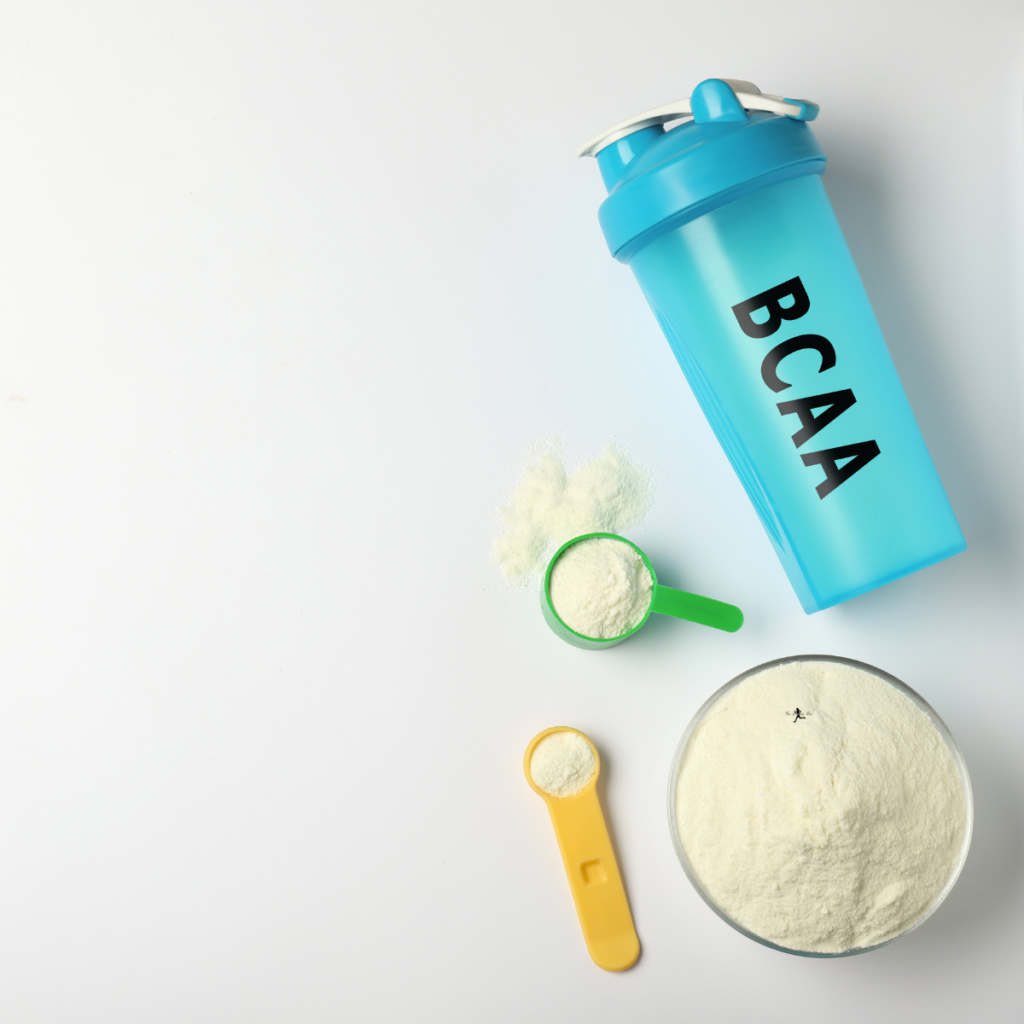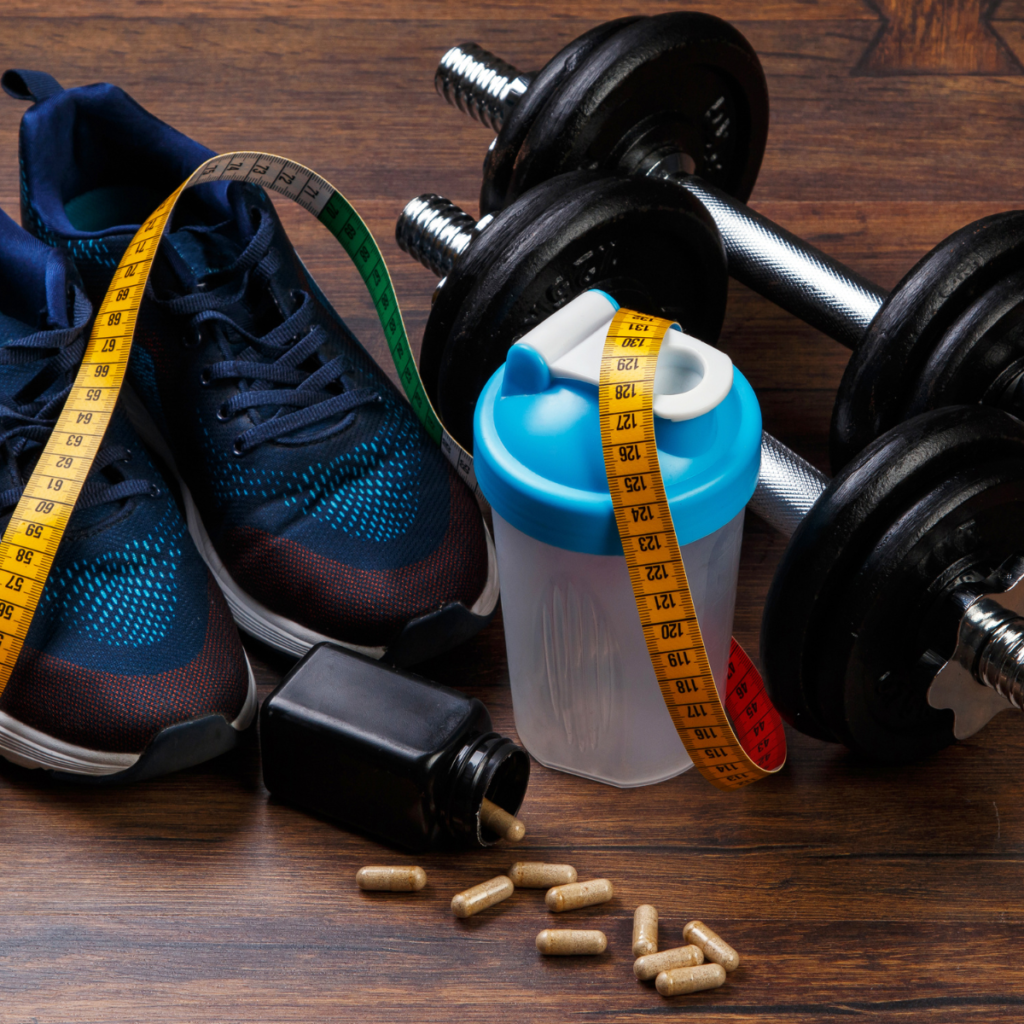6 Amazing Benefits of BCAAs for Runners: Boost Energy, Reduce Soreness, and Enhance Recovery
Running is helpful, but it can also be hard on our bodies. It requires our muscles and joints to have optimum nutrition to refuel and recover properly.
In addition to a healthy and balanced diet, we need sufficient sleep, hydration, and adjunct training strategies. However, many runners can’t fulfill the micro and macronutrient requirements of their runners’ bodies need.
As a result, they often suffer from physical fatigue, bad posture, imbalances, and injuries. In the worst cases, running may lead to poor heart health.
Thankfully, dietary supplements can help runners maintain and improve their overall health. One of the most popular supplements among casual runners and athletes is BCAA supplements. Let’s talk about them here.
Related Article:Nutrition for the Injured Runner
What Are BCAAs?
The term “branched-chain amino acids” (BCAAs) generally refers to three essential amino acids: valine, leucine, and isoleucine. They’re called “branched-chain” since these three’s molecular structure includes branches.
BCAAs are proteins found in food, which muscles “burn” for energy. Supplementation of them before and after running is particularly common among runners. Research has shown that they’re most directly involved in muscle protein synthesis.
Another reason is that BCAAs have unique chemical structures. They can be rapidly metabolized through a simpler digestion process. Consuming proteins quickly after training is crucial for muscle recovery and growth.

Sources of BCAA for Runners
BCAAs can be consumed through diet. They’re usually found in protein-rich food sources, particularly animal sources. Specifically, they can be found in meat, fish, poultry, and eggs. They can also be taken from dairy products like milk, yogurt, and cottage cheese.
Some plant-based foods have decent concentrations of BCAAs. These include legumes (like tofu, tempeh, mung, navy, and kidney), nuts (like butternuts, cashews, and almonds), and seeds (like hemp, pumpkin, and sesame seeds).
If they can’t be consumed through diet or get enough of it, BCAA supplementation is recommended. They usually come in two forms: powder and pill. Initially, powder forms tasted horrible because they were straight, unflavored powders. That’s why they’re often mixed with other supplements. However, nowadays, they come in a wide array of delicious flavors.
In contrast, the capsule or pill forms of BCAA aren’t as common as BCAA powders for a reason. They’re often hard to swallow since they’re bigger than most other pill supplements. Despite its size, one must take a few to achieve the required dosage. Their digestion time is also slower than powders.
Either way, ensure to only opt for Superior BCAA Supplement Selections. More importantly, they should be appropriately taken with the recommendation of a healthcare professional and based on package directions.
Benefits of BCAAs For Runners
There‘s quite an extensive body of studies exploring and proving the training and performance benefits of BCAA for runners. The following lists six potential advantages of BCAA supplementation for runners that are backed by science.

1. Promote Muscle Growth and Strength
BCAA has a well-established role in stimulating our bodies’ anabolic (muscle-building) hormones, which can help boost muscle protein synthesis (producing new muscle protein). With this, runners don’t only preserve muscle mass but also build and repair new muscle fibers after their training.
2. Boost Energy
BCAAs are directly transported to and oxidized in the muscles instead of the liver and can provide up to 10% of the total energy required during endurance exercises. In other words, consuming BCAAs before or during running adds more readily-available fuel for the body and spares some carbohydrates to delay bonking (when muscles run out of fuel).
3. Decrease Time to Fatigue and Perceived Exertion
In addition to promoting energy boost, BCAAs can help preserve glycogen stores. This reduces runners’ level of perceived exertion, increasing their time to exhaustion and even allowing them fatigue resistance. Research has also found that they can decrease lactate production (which makes the legs feel heavy and tired when running).
4. Support Gut Health and Improve Digestion
Studies have shown that BCAAs can transport nutrients, upregulate immune cells and signaling pathways, promote intestinal development, and maintain gut barrier integrity. Other evidence also suggests that BCAA improves intestinal absorption of nutrients, which is vital for runners since, as stated, nutrition is critical to their recovery and injury prevention.
5. Inhibit Cortisol Production
Cortisol isn’t only a stress hormone, which is likely to increase in response to intense exercise and lead to muscle breakdown if left unchecked. It can also increase fat storage in our bodies, which may negatively affect runners’ athletic performance. The good news is that research found that BCAAs can help inhibit the harmful effects of cortisol.
6. Reduce Post-Workout Soreness
Research has found that consuming BCAAs after running can decrease muscle damage and delayed onset muscle soreness (DOMS). This helps expedite recovery from hard runs and strenuous workouts.
Final Thoughts on the Benefits of BCAAs for Runners
Most individual circumstances might make taking BCAAs supplements more or less appropriate since they can be taken from food sources. However, vegan or vegetarian runners and older runners who are prone to sarcopenia (age-related muscle mass and strength loss) may have the most to gain from BCAA supplementation. Remember that taking BCAAs must be made in the context of considering one’s overall diet and health needs.
This was a special article written by the talented Andrina Belle, you can read more about her below!
Author Bio:
Andrina Belle is a fitness and health writer with an eye for all things lifestyle. Andrina has always been in love with the idea of living life to the fullest, which you can see in her writing.
She spends her days reading up on the latest research about health, exercise, and nutrition—and when she’s not doing that, she’s cooking something delicious or trying out new recipes. She also loves spending time outdoors—hiking, biking, skiing…you name it!
AFFILIATE DISCLOSURE
As an Amazon Associate, I earn from qualifying purchases. This post may contain affiliate links. If you use these links to buy something we may earn a commission. The Site may contain links to affiliate websites, and we receive an affiliate commission for any purchases made by you on the affiliate website using such links.
All information should be used as a tool for more knowledge on the subject topic, to use as references for later articles where applicable, or just to keep it in mind during future exercise routines or activities.
This article is not meant to give medical advice or to replace professional health care. Should any ailment occur please contact your doctor or physical therapist immediately to keep yourself safe and prevent further damage.
The author is not liable for any personal or commercial damage directly or indirectly related to the content hereof. You are responsible for adhering to local laws and regulations regarding health & safety, including proper use of equipment or safety gear, and compliance with governing healthcare associations, and state, and federal regulations.
6 Potential Benefits of BCAAs For Runners





